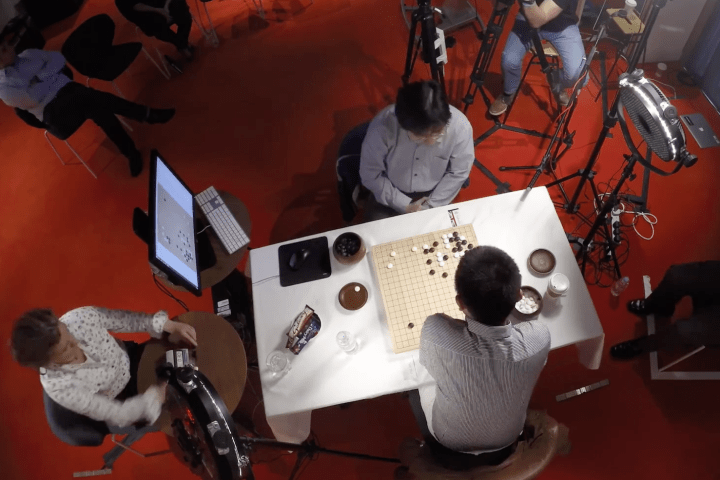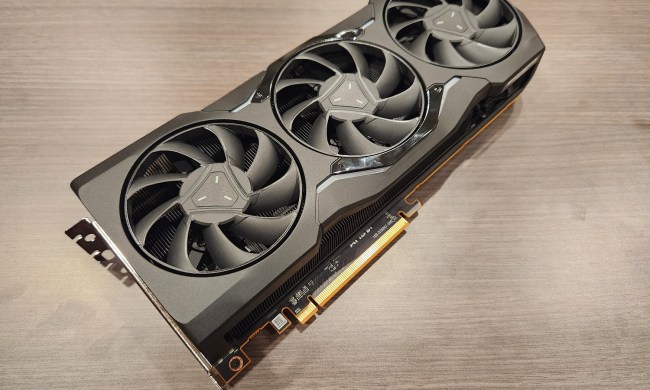
Updated on 03-13-2016 by Albert Khoury: AlphaGo wins third straight game over Lee, but he comes back with a win in the fourth game, leaving the current score at 3-1 for the five-match game.
Several attempts have been made to create an AI capable of playing Go, inspired by the famous chess-playing computer Deep Blue — but Go is generally considered to be a much more difficult for computers to learn than chess.
Various attempts at creating such a system have been made in recent years, but most have proven to be incapable of competing at the highest level. Even Facebook’s darkforest project is yet to defeat a human player without any handicaps being applied.
The exception to this trend is Google’s AlphaGo. Using a sophisticated mixture of machine learning and tree search techniques, in October 2015 the software managed to pick up its first win over a human, European champion Fan Hui.
While that victory did much to legitimize the upstart AI, AlphaGo now faces even more daunting competition in the form of Lee. The fearsome South Korean is classified as 9 dan — the maximum rank — compared to Fan’s 2 dan, and is the second-most successful Go player in the world in terms of international titles.
Lee has stated that he’s confident that he can beat the computer on this occasion, but is quoted as saying that he might be outpaced in the next few years in a report by Ars Technica. However, should he lose, he’ll surely find some commiseration in the fact that Google’s winnings will be donated to worthy causes.
AlphaGo’s upset victory in the March 8 match demonstrated the advances the Deep Mind team have made even since their bout with Fan last October. Lee described AlphaGo’s late game play as “perfect” and noted that the system “made some moves that no human would ever make.”
The second match, on March 9, showed that any holes in AlphaGo’s defense had been patched up, and commentators and spectators alike noted strong play from the computer in all phases of the game. Lee compared the first and second games in the post game press conference, saying “from the very beginning of the game, there was not a moment in time that I felt like I was leading the game. Yesterday I did, as I was playing, feel like AlphaGo had played certain problematic positions but today I really feel that Alpha has played a near-perfect game. There was not a moment where I felt like AlphaGo’s moves were unreasonable.”
DeepMind founder Demis Hassabis also explained after the second victory that AlphaGo estimates its chances of winning, and the machine started out sure of itself, evened out in the middle, and then became very confident near the end. When asked what AlphaGo’s weakness is, Lee simply responded, “I guess I lost the game because I wasn’t able to find out what the weakness is.
The team is taking a break tomorrow, but match three is scheduled for 8:00 PM Pacific on Friday, March 11th, and will once again be live-streamed around the world from the Four Seasons hotel in Seoul via the Deep Mind channel on YouTube.
AlphaGo had its third straight win against its human opponent yesterday, ending the five-game match. With a current series record of 3-1, the AI is now at 9-1 overall after its 5-0 win against Hui. Putting aside any best-of-three scenarios, the game continued today, and Lee had a chance to get back some glory, as reported by The Verge. Lee’s victory in the fourth match comes with some controversy, as it is believed the AI may have made some mistakes. DeepMind founder Demis Hassabis tweeted his concerns in this regard.
Lee Sedol is playing brilliantly! #AlphaGo thought it was doing well, but got confused on move 87. We are in trouble now…
— Demis Hassabis (@demishassabis) March 13, 2016
Lee was surprised by the audience’s reaction in the post-game conference. “I’ve never been congratulated so much just because I won one game!” he said. The 18-time world champion was humbled by his win, remarking that the first three losses made it feel more valuable.
Updated on 03-10-2016 by Brad Bourque: AlphaGo has claimed a second victory over Lee, who resigned in the fifth hour, saying the computer had played a “near-perfect” game.
Updated on 03-09-2016 by Brad Jones: After three and a half hours of play, the AlphaGo software claimed the first match in the series overnight. Lee resigned after it became obvious that the computer’s lead was insurmountable, according to a report from Phys. The player is quoted as saying he was “shocked by the result” in the aftermath of his defeat.


